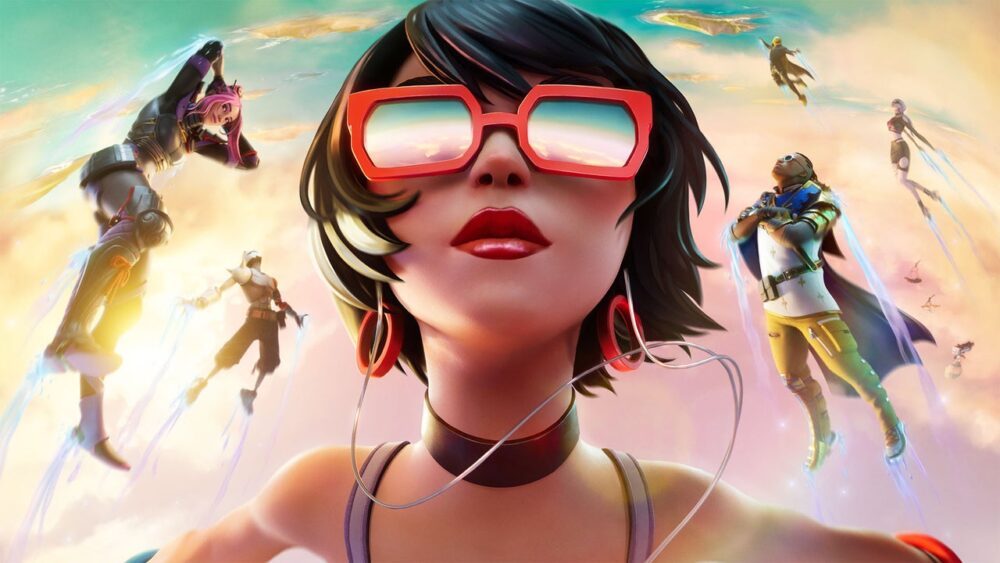Nobody knows what the metaverse is. The term, which has become one of the most popular fundraising idioms deployed in boardrooms across the country, is notoriously enigmatic. Can the metaverse be defined as a social space where gamers hang out? A multiverse partitioned into distinct plots of land, governed by ruthless capital laws? Yet another extension of the questionable NFT gambit? Ask a million game developers, and you’ll likely get a million different answers. You could make the argument that we’ve already been living in the metaverse for decades – after all, I spent much of my youth ambling outside of the Ironforge auction house in World of Warcraft. You could also make the argument that the metaverse is a far-off dream that can only be actualized by wistfully futuristic technology; all of us transporting to a digital utopia using the holodeck from Star Trek. Perhaps it is better, and more honest, to think of the metaverse as something studios are creating on the fly, rather than a concrete ideal we’re aspiring towards. In that sense, Fortnite should be considered the torchbearer for this strange new frontier.
I am a career Fortnite skeptic. When the game’s Battle Royale mode burst onto the scene on September 26 2017, just two months after the core Save the World mode launched, I was happy to write off Epic’s latest gamble as a strained, desperate attempt to cash in on the rollicking PlayerUnknown’s Battlegrounds boom. Months later, when Fortnite had firmly left all of its competitors in the dust, I still considered the game to be a quirky, ephemeral fad; a flavor in the month, surely to be steamrolled by the influx of world-conquering Infinity Ward and Respawn interpretations of the genre sure to come. That did come to pass – Warzone and Apex Legends are both massive hits – and Epic countered those incursions by… adding a payload of inter-fiction skins to their video game. Surely, that wasn’t going to work. Fortnite was a glorified mod that got lucky; it parachuted in at the absolute prime of the white-hot Battle Royale revolution, and the ability to take control of, say, Thanos would surely not prevent it from plummeting back into obscurity. When Tim Sweeney started talking about Fortnite as less of a game and more of a decentralized social experience, I thought Epic had officially lost the plot. How on earth is anyone going to hang out in a video game where the primary way to interact with your fellow players is down the barrel of a gun?
Fortnite is a game. But please ask that question again in 12 months.
— Tim Sweeney (@TimSweeneyEpic) December 26, 2019
Years later, I am prepared to admit defeat on my anti-Fortnite biases. Epic has doubled and tripled down on the belief that their product can transcend all of the established limitations of a video game – crossing over into a self-styled metaverse – and I think it is officially undeniable that they’ve pulled it off. Alex Perry, at Mashable, has a good summary of the copious ways Fortnite has reached escape velocity with all of its eccentric gameplay experimentation. A round of battle royale still has winners or losers, yes, but in Fortnite you can also “explore the expansive map, and do quests to unlock more goofy skins and accessories,” he writes. “You can go ‘fishing.’ You can hop into a car with a working radio station and just joyride around the landscape, or do the same with a boat in any of the map’s huge lakes.”
All of this, of course, is filtered through a frankly astonishing catalog of bespoke, pop-culture costumes that allow for some genuinely Ready Player One-esque wish fulfillment. Thanos, introduced in 2018, was just the tip of the iceberg. Now, anyone in the Fortnite expanse can transform into John Cena, Spider-Gwen, or the Demogorgon, to name just a few. The skins that officially won me over? The introduction of the Dragon Ball Z cast. I watched Goku blast a Kamehameha across the map – securing Victory Royale – and realized that this was the exact sort of video game fantasy I dreamed about as a 12 year-old. Fortnite keeps getting bigger and weirder, and that’s all I really want out of whatever the metaverse is supposed to be.
“
There’s a pervasive negative aura whenever game studios start talking up the metaverse. We’ve already witnessed out-and-out revolts by Ubisoft fans and Square Enix fans when the bosses of those two companies started making overtures to a crypto-heavy, transreality future. It’s pretty easy to diagnose where that negativity comes from; the bulk of most metaverse pitches hinge on massive NFT integrations – despite the fact that nobody has proven with any certainty that gamers are interested in say, auctioning off a weapon skin that’s encoded on the blockchain. Some of the biggest proponents of the model, like Facebook, have proven to be untrustworthy actors in our private and public lives, and now we are expected to forget about their reputation and go live in their worlds? Buying and selling digital material under their watchful eye? You aren’t wrong for being suspicious. I am too.
“There is a fear that the [crypto] influence will deplete good design tenets, creating an environment where video game experiences are increasingly tiered by financial thresholds, creating a negative experience for consumers,” I wrote, in a story about the metaverse for Vox earlier this year. “So far, publishers haven’t been able to assuage those anxieties.”
I think that’s what makes Fortnite such an outlier, and why gamers seem to be so much more optimistic about its metaversal potential. Yes, obviously, Epic is a for-profit company, and the skins sold on Fortnite all come at a price. But those assets aren’t mucked up in any sinister, blockchain membership program, and therefore, we do not feel like we’re being sold a bag of goods. You do not purchase the Goku skin because you believe it will be a good investment someday when you flip them to a prospective buyer for a windfall of sweet, sweet Ethereum. No, you purchase the Goku skin to simply be Goku. That is the same priority across the nascent Fortnite metaverse; all of the decisions Epic makes with the game seems to tie back to a loose, vibrant, gamer-y joy. This is not a metaverse masquerading as a Ponzi scheme or a work-for-hire program; you come to Fortnite to have fun, and with the multitudinous ways Epic continues to expand upon what is possible in a multiplayer match – from Ariana Grande concerts to the Infinity Gauntlet – all of a sudden, the metaverse seems like something worth getting excited about.
So do I have any better understanding of what the metaverse is supposed to be now that Fortnite has won me over? No, not really. At its core, Fortnite remains a battle royale game, and no off-beat mini-games or crossover events are going to change that anytime soon. But perhaps the vagueness can work to Epic’s benefit; maybe they’ll be the company that establishes the expectations players have for any publisher welcoming players to their own metaverses. I cannot adjudicate the finer scientific points of the concept, but I can say, with confidence, that the metaverse should be a vector for huge gusts of laughter. It should feel like anything is possible. It should allow us to snipe our friend dressed as Dr. Strange out of the air, while we ourselves are dressed as John Cena. If we’re all enjoying ourselves this much, maybe Epic is right. We’ll all someday be enmeshed in the metaverse, without ever realizing it.
Luke Winkie is a freelance writer for IGN.


